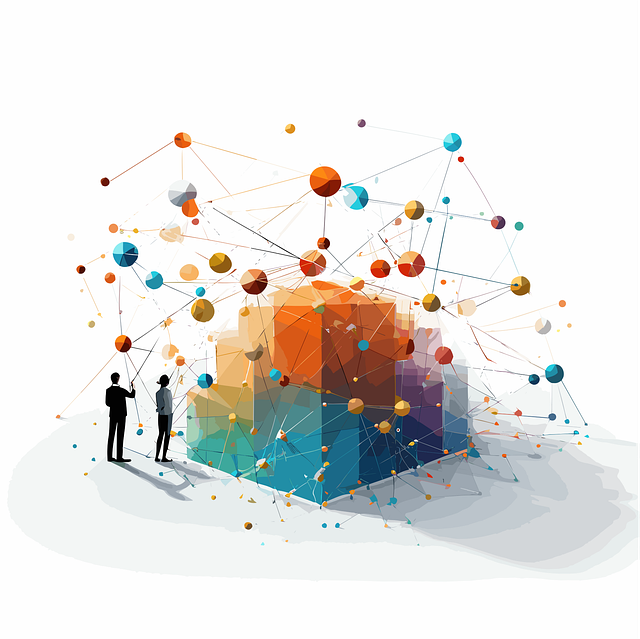AI feedback aggregation transforms group classes by enhancing social engagement through real-time analysis of student responses, enabling teachers to adapt teaching strategies dynamically. This technology personalizes learning, facilitates peer-to-peer learning, and fosters community, boosting engagement and outcomes. By aggregating and summarizing student feedback, AI helps educators tailor their methods, fostering connection and valuing every learner. AI-powered chatbots also facilitate conversations and organize activities, encouraging interaction and creating an engaging, inclusive environment for all participants in group classes.
“In today’s digital age, Artificial Intelligence (AI) is transforming education, particularly in group classes. This article explores the revolutionary impact of AI-driven content on social engagement. We delve into innovative strategies like AI feedback aggregation, which enhances student interactions and fosters a vibrant community. By harnessing data-driven insights, educators can create dynamic environments that encourage collaboration and connection. Unlocking AI’s potential in these areas promises to revolutionize how we perceive and participate in group learning experiences.”
- Unlocking Potential: How AI Feedback Aggregation Enhances Social Engagement in Group Classes
- The Power of Data-Driven Insights: AI's Role in Understanding Student Interactions
- Fostering Community and Connection: Strategies for Leveraging AI to Boost Social Interaction
Unlocking Potential: How AI Feedback Aggregation Enhances Social Engagement in Group Classes

AI feedback aggregation has the potential to revolutionize group classes by enhancing social engagement. This cutting-edge technology enables instructors to gather and analyze student responses in real-time, providing a dynamic and interactive learning environment. By quickly understanding individual and collective insights, teachers can adapt their teaching strategies on the fly, ensuring every learner stays actively involved.
The power of AI feedback aggregation lies in its ability to create a more personalized experience within group settings. It allows for immediate clarification of concepts, encourages peer-to-peer learning, and fosters a sense of community among participants. This level of interaction not only boosts engagement but also improves overall learning outcomes, making it an invaluable tool for educators aiming to optimize group class dynamics.
The Power of Data-Driven Insights: AI's Role in Understanding Student Interactions

In today’s digital age, Artificial Intelligence (AI) is transforming education by providing data-driven insights that were previously unimaginable. By leveraging AI for feedback aggregation in group classes, educators can gain valuable information about student interactions and learning patterns. This technology analyzes vast amounts of data from various sources, such as discussions, assignments, and surveys, to identify trends and areas where students may need additional support.
AI-driven content boosts social engagement by fostering a more dynamic and interactive learning environment. Through the use of AI feedback aggregation, teachers can quickly identify common challenges within group settings, allowing them to tailor their teaching methods accordingly. This personalized approach enhances student participation, encourages collaborative problem-solving, and ultimately leads to improved academic outcomes.
Fostering Community and Connection: Strategies for Leveraging AI to Boost Social Interaction

AI has the potential to revolutionize online communities and foster a sense of connection among members, especially in group classes. One effective strategy is leveraging AI for feedback aggregation. By implementing AI algorithms that analyze and summarize student responses, instructors can gain valuable insights into the class’s dynamics and individual needs. This data-driven approach allows teachers to personalize their teaching methods, ensuring every learner feels heard and valued.
Additionally, AI-powered chatbots can play a significant role in breaking the ice and encouraging interaction among peers. These virtual assistants can facilitate conversations, answer queries, and even organize group activities, creating an engaging environment that encourages social bonding. By combining personalized feedback with interactive features, AI enhances community building within online learning spaces, making group classes more inclusive and enjoyable for all participants.
AI-driven content strategies, particularly the utilization of AI feedback aggregation in group classes, significantly enhance social engagement. By analyzing student interactions and providing data-driven insights, AI fosters a more connected community within educational settings. This technology not only boosts engagement but also offers tailored experiences, ensuring every learner feels valued and supported. Implementing these AI strategies can revolutionize how we perceive and interact in group environments, ultimately creating vibrant and inclusive spaces for knowledge exchange.
